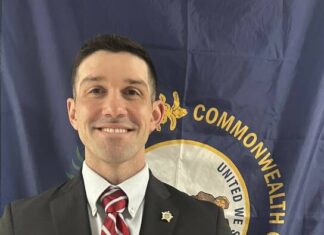Taking a licking in international headlines over the weekend, the downgrade of U.S. credit rating by agency Standard and Poor’s has had an unexpected effect on the U.S. bond market.
“(S&P) lowered the rating from AAA to AA+, from what I understand, based on political situations,” said Jim Moose, a retired money management executive.
Moose, who was once a senior partner in an investment management firm and worked for the World Bank for 20 years before retiring to Maysville, sees the recent shift in U.S. credit rating by S&P a concern, but not a reason for alarm.
“They are one of three U.S. rating firms. The impact on Monday was sort of peculiar. In spite of the S&P rating, the value of U.S. debt rose and the interest rate fell,” Moose said.
By midday Tuesday, the Dow was back above 11,000 following a 634 point drop Monday.
Because a lot of the recent recovery was based on government spending, which is now going to be cut back, a new recession will have to focus on recovery efforts from other sources, Moose said.
“Government spending helped us get out, but they are cutting back on government spending,” Moose said. “I think the stock market is signaling, there is a probability of a new recession.”
Maysville banker and State Rep. Mike Denham is also concerned about the rating downgrade, but confident in local economic recovery.
“Washington needs to quit playing politics and get back to economics,” Denham said. “The U.S. is a great place to invest and I think most of the world thought that Monday.”
Moose also saw the drop in prices on the stock market, reported to be the biggest since 2008, as the result of technological innovations which allow computerized stock trading that is done in micro seconds and able to take advantage of minute fluctuations in stocks.
“Trading was very fast; it is going back up (Tuesday),” he said.
Consumer driven economic recovery is essential, especially on the local level, Moose said.
“Any time someone can purchase locally made products or locally grown foods it helps the local economy grow,” he said.
“The Federal Reserve announced today it is keeping the interest rates low for the next two years,” Denham said. “I feel good about the local economy. We have a lot going on and positive things happening here.”
Due to the S&P rating, there may be some holding back on the part of consumers, who may have been considering purchasing large manufactured goods like appliances.
“Postponable purchases of major items is often where a recession is seen first,” Moose said. “Consumers are cautious.”
The outcome of the S&P rating and possible recession is unpredictable, Moose said.
“There has been a decline in state and local spending. What happens next … I don’t know,” Moose said.
Denham cited protection of jobs and putting people back to work as focuses for helping break out of the recession cycle.
“Our market is so volatile. Hopefully they get the market straightened out. The economy is not good but I believe it is poised to get there,” Denham said. “It is just going to take some time.”
The drop in crude oil prices on Tuesday was also an indicator that the S&P rating was more of a slap than a punch, Denham said.
“We also have to look at the European situation. The U.S. is in better shape than that,” Denham said. “Our manufacturing and agricultural sectors are poised to do very well.”






